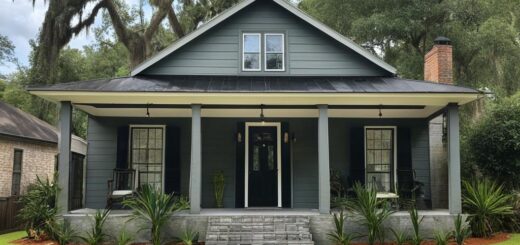Discover Sober Living Communities for Recovery
If you or a loved one is struggling with addiction, finding the right support and resources can be crucial for long-term success. One option to consider is a sober living community, which offers a safe and supportive environment for individuals in recovery.
Sober living communities provide a network of peers who understand and can relate to the challenges of addiction recovery, making them a valuable resource for long-term sobriety. By participating in a supportive sober living community, individuals can gain the tools and confidence they need to navigate the challenges of addiction recovery with success.
If you’re ready to start your journey towards lasting sobriety, explore the many options available in sober living communities today.
Key Takeaways:
- Sober living communities provide a supportive environment for individuals in recovery.
- These communities offer a network of peers who understand the challenges of addiction recovery.
- Participating in a sober living community can help individuals gain the tools and confidence needed for long-term sobriety.
- It’s important to find the right sober living community that aligns with your needs and preferences.
- Sober living communities are a valuable resource for ongoing recovery and sober living.
Understanding Sober Living Homes
Sober living homes serve as residential settings that provide a safe and supportive environment for individuals recovering from addiction. These homes provide a transitionary step for individuals who have completed a more intensive treatment program and are preparing to transition towards independent living.
Residing in a sober living home can be advantageous as it allows individuals to surround themselves with fellow recovering addicts, creating a supportive community that fosters accountability, trust, and a sense of belonging.
These homes usually operate under house rules, including mandatory attendance to support group meetings and drug screening tests. These rules ensure that the recovering individual remains on track towards a successful long-term recovery.
The transition can be challenging, but sober living homes provide a helping hand and gentle push to help individuals navigate addiction recovery with confidence and attain long-term sobriety.
Benefits of Sober Living Programs
Participating in sober living programs can offer numerous benefits for individuals in recovery. These programs provide structured support and accountability to ensure a successful transition into independent living.
Sober living programs often offer recovery housing, which provides a safe and supportive living environment for individuals navigating addiction recovery. Recovery housing offers an opportunity to build a supportive community and establish connections with others on the same recovery journey.
“Sober living programs provide much-needed aftercare support, which is crucial for maintaining sobriety in the long term. These programs offer various aftercare services, including counseling, education, and job placement, to ensure individuals have the resources they need to maintain their sobriety for years to come.”
By participating in sober living programs, individuals can gain the necessary skills and resources to achieve long-term sobriety. These programs offer an integral support system that promotes healthy living, accountability, and positive habits.

Recovery housing provides the opportunity to develop essential life skills, such as budgeting and time management, which are crucial for maintaining long-term sobriety. The structured environment offered by sober living programs minimizes the risk of relapse by providing a supportive community, ongoing education, and aftercare support.
By participating in sober living programs, individuals can establish the foundation needed for a successful and fulfilling recovery journey.
An Inside Look Into Sober Living Facilities
Sober living facilities, including halfway houses, provide a safe haven for individuals recovering from addiction. These facilities offer a supportive and communal living environment that can ease the transition from treatment to independent living. Residents have access to various amenities, including counseling, employment resources, and recreational activities. Additionally, the facilities also enforce rules and regulations that help residents maintain sobriety.
By living in a sober living facility, residents can surround themselves with individuals who share the common goal of staying sober. This provides a sense of camaraderie and helps to reduce the chances of relapse. Over time, residents learn valuable life skills, such as accountability and responsibility, which are essential for long-term success.
“The communal living environment of sober living facilities creates a sense of support, making it easier for individuals to prioritize their recovery,” says John Smith, a counselor at a sober living facility.
It’s important to note that sober living facilities are not the same as drug treatment centers or rehab facilities. While these centers focus on intensive treatment options, sober living facilities provide a supportive environment for individuals who have completed treatment and are looking for a place to continue their recovery journey.
What to Expect
When considering a sober living facility, residents can expect to follow a set of rules and guidelines, similar to those of any communal living environment. Examples of these guidelines may include curfew restrictions, drug and alcohol testing, and active participation in house meetings.
Residents may also have access to various services and programs, such as job training and placement, educational programs, and mental health counseling. The overall goal of sober living facilities is to provide a stable and supportive environment for individuals to achieve long-term sobriety.
Finding the Right Sober Living Community
When searching for a sober living community, it’s essential to find one that suits your specific needs and preferences. Here are some factors to consider:
Location:
The location of the sober living community is crucial. Look for a community in a safe, convenient area that is easily accessible and close to your support network, employment opportunities, and other resources.
Amenities:
Consider what amenities the sober living community offers, such as comfortable living spaces, recreational activities, and access to transportation. These amenities can impact your overall quality of life while in the community.
Rules and Regulations:
Sober living communities have different rules and guidelines to follow. Ensure that you are comfortable with the rules and can comply with them. Rules should be in place to ensure accountability, structure, and a safe environment.
Community Support:
Support from peers can be an integral part of recovery. Consider the size of the community and the support systems and resources available, such as house meetings, group therapy, and other recovery-oriented activities.
When considering these factors, you’re likely to find a sober living community that’s a good fit for you. Remember that finding the right community is an important part of the recovery process.

The Role of Sober Living Communities in Long-Term Recovery
Sober living communities play a crucial role in supporting long-term recovery. These communities provide an ongoing network of support for individuals recovering from addiction, helping them maintain sobriety beyond initial treatment. In sober living communities, individuals are exposed to a supportive environment that empowers them to embrace a healthy, productive lifestyle free of alcohol and drugs.
At sober living communities, participants learn new skills and strategies that are necessary for maintaining sobriety over time. They also establish healthy routines and habits that support their overall recovery goals. By living in a community of like-minded individuals, participants develop a renewed sense of purpose and motivation that is essential for long-term success.
Through ongoing support and guidance, sober living communities offer individuals the tools they need for long-term recovery success. With the help of these communities, participants can overcome the challenges of addiction and achieve lasting sobriety.
Conclusion
In conclusion, sober living communities can be a critical resource for individuals in recovery. These communities offer a supportive environment that can help individuals navigate the challenges of addiction recovery with confidence. By providing structured support, accountability, and aftercare services, sober living communities can be integral to maintaining sobriety in the long run.
Through this article, we hope to have demonstrated the importance of sober living communities in the recovery process. By taking the first step towards exploring these supportive environments, individuals can find the right community that aligns with their needs and preferences. With ongoing support from their sober living community, individuals can embark on a journey towards lasting recovery and sobriety.
Remember, recovery is a continuous process, and sober living communities can provide an ongoing network of support that is essential to maintaining sobriety beyond initial treatment. Whether you are just beginning your journey or are well into recovery, we encourage you to explore the resources and support available through sober living communities.



Recent Comments